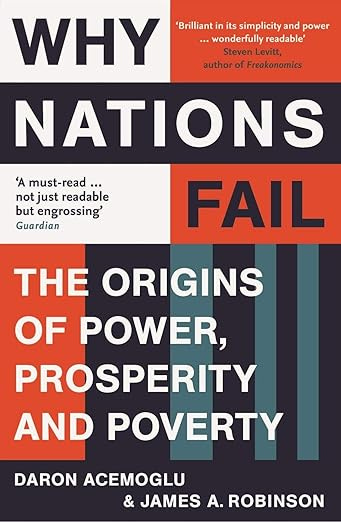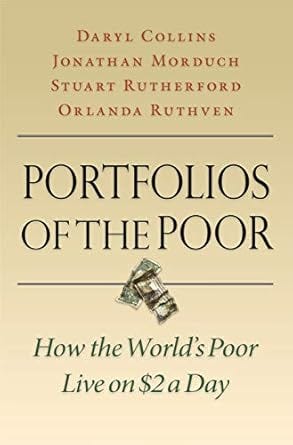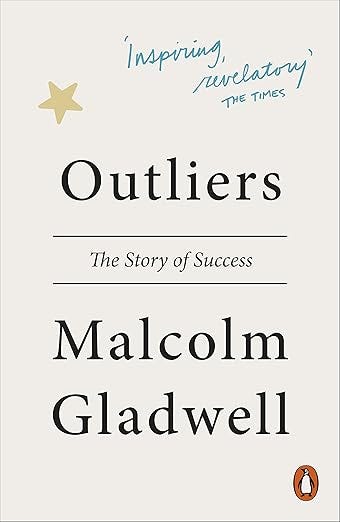Why nations fail by Daron Acemoglu: The origins of power, prosperity and poverty
Description
Why nations fail by Daron Acemoglu
Get the book: https://amzn.to/4gzb5To
Why are some nations more prosperous than others? Why Nations Fail sets out to answer this question, with a compelling and elegantly argued new theory: that it is not down to climate, geography or culture, but because of institutions. Drawing on an extraordinary range of contemporary and historical examples, from ancient Rome through the Tudors to modern-day China, leading academics Daron Acemoglu and James A. Robinson show that to invest and prosper, people need to know that if they work hard, they can make money and actually keep it - and this means sound institutions that allow virtuous circles of innovation, expansion and peace.
Based on fifteen years of research, and answering the competing arguments of authors ranging from Max Weber to Jeffrey Sachs and Jared Diamond, Acemoglu and Robinson step boldly into the territory of Francis Fukuyama and Ian Morris. They blend economics, politics, history and current affairs to provide a new, powerful and persuasive way of understanding wealth and poverty.
Here are the key lessons from Why Nations Fail: The Origins of Power, Prosperity, and Poverty by Daron Acemoglu and James A. Robinson:
1. Inclusive Institutions Foster Prosperity
• Nations thrive when political and economic institutions are inclusive, providing equal opportunities and encouraging innovation and participation.
2. Extractive Institutions Lead to Poverty
• When elites control resources and power, they extract wealth from the majority, leading to stagnation and inequality.
3. Political Centralization is Crucial
• Successful nations balance centralized authority with inclusivity, ensuring order while empowering people.
4. Geography Alone Doesn’t Determine Wealth
• Economic success is more about institutions than physical location, climate, or natural resources.
5. The “Iron Law of Oligarchy”
• Elites often resist change to preserve their power, which can stifle progress and perpetuate extractive systems.
6. Small Changes Can Lead to Big Shifts
• Critical junctures, like revolutions or wars, can disrupt the status quo and reshape institutions for better or worse.
7. Foreign Aid Alone Cannot Fix Poverty
• Aid often fails in countries with extractive institutions, as it gets misused rather than fostering systemic change.
8. Creative Destruction Drives Progress
• Innovation disrupts old systems, and inclusive institutions allow these changes to benefit society. Extractive systems, however, resist such transformations.
9. Political Power Shapes Economic Outcomes
• A nation’s political system heavily influences its economic policies, success, and inclusivity.
10. There Are No Quick Fixes
• Lasting development requires deep institutional reforms and cannot be achieved through superficial policies or external interventions.
11. History Matters
• A nation’s historical experiences, including colonization and power struggles, shape its institutions and economic path.
12. Economic Growth Can Be Unsustainable Without Inclusivity
• Extractive systems may generate short-term growth, but they lack the resilience to sustain it over time.
























